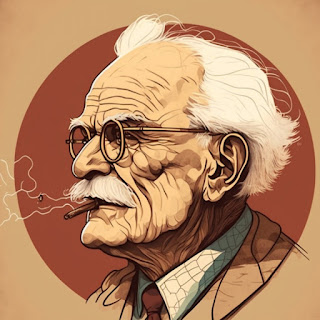Carl Jung, the Swiss psychiatrist and founder of analytical psychology, delved into the depths of the human psyche, exploring the realms of the unconscious mind and the archetypes that shape our behavior. While Jung did not specifically address gambling in his extensive body of work, one can extrapolate his theories to gain insights into what he might say about the phenomenon of gambling and its implications on the human psyche.
The Archetypes and the Unconscious.
Jung proposed the existence of archetypes, universal symbols and themes that reside in the collective unconscious of humanity. These archetypes, such as the Hero, the Shadow, and the Anima/Animus, shape our thoughts, behaviors, and dreams. When it comes to gambling, one might argue that certain archetypal forces are at play.
The Gambler Archetype
If we were to apply Jungian concepts to gambling, we might identify the emergence of a "Gambler" archetype. The Gambler embodies the thrill-seeker, the risk-taker, and the individual who seeks to test their fate. This archetype taps into the innate human desire for excitement and the unknown, pushing individuals to take chances in the hope of a favorable outcome.
The Shadow Side of Gambling
Jung's concept of the Shadow, the unconscious aspect of the personality containing repressed weaknesses, desires, and instincts, can shed light on the darker side of gambling. The allure of quick riches and the excitement of risk-taking can awaken the Shadow, leading individuals to engage in compulsive gambling behavior. The Shadow, when left unexamined, may drive individuals to gamble as a means of escaping from unresolved issues or emotional turmoil.
The Collective Unconscious and Gambling Myths
Jung believed in the collective unconscious, a reservoir of shared experiences and symbols that transcends individual lives. In the context of gambling, one can observe the prevalence of myths and symbols associated with luck, fate, and chance. Games of chance often incorporate archetypal symbols like dice, cards, and numbers, tapping into the collective unconscious and offering a shared experience that resonates with the human psyche.
Individuation and Self-Discovery
Jung's concept of individuation, the process of becoming one's true self, could provide a framework for understanding the potential positive aspects of gambling. If approached consciously and with self-awareness, engaging in games of chance might serve as a tool for self-discovery. By confronting the uncertainties of life and the unpredictable nature of luck, individuals may navigate their own psyche, gaining insights into their relationship with risk and the unknown.
Conclusion
While Carl Jung did not explicitly address the topic of gambling, his profound insights into the human psyche offer a lens through which we can analyze the phenomenon. The Gambler archetype, the Shadow's influence, the collective unconscious, and the potential for self-discovery all contribute to a nuanced understanding of why individuals are drawn to gambling. By applying Jungian concepts to this complex behavior, we can gain valuable insights into the psychological forces at play when the dice are rolled or the cards are dealt.
Photo: Pixabay (free)
